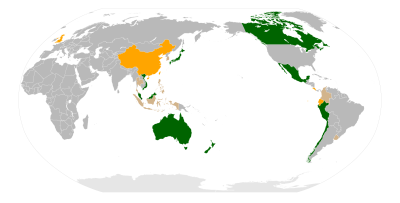Malaysia: Postpone the Enforcement of the Comprehensive and Progressive Agreement for Trans-Pacific Partnership (CPTPP)

All Global Research articles can be read in 51 languages by activating the Translate Website button below the author’s name.
To receive Global Research’s Daily Newsletter (selected articles), click here.
Follow us on Instagram and Twitter and subscribe to our Telegram Channel. Feel free to repost and share widely Global Research articles.
***
Malaysia ratified the Comprehensive and Progressive Agreement for Trans-Pacific Partnership (CPTPP) on 30th September 2022. It comes into force on 30th November 2022. One hopes that the new Malaysian government will postpone its enforcement until a thorough cost-benefit analysis of the CPTPP is done and the findings presented to Parliament for debate.
A postponement is necessary because the agreement impinges upon our national sovereignty as no other multilateral economic arrangement does. It affects the ability of the Malaysian state and society to protect the well-being of its workers and people. If a dispute arises between a foreign enterprise operating in Malaysia and the Malaysian government over some issue pertaining to the safety of our workers, the matter would be referred to an international arbitration panel whose decision would be final. Our local courts would have no say.
It is also alleged that the implementation of the CPTPP will witness a sharp increase in the price of medicines. Imported medicines will be protected by much tighter intellectual property laws. This will undoubtedly have a negative impact on our ability to provide affordable health care to the poorer section of society.
The proposed trade agreement will also have an adverse impact upon the farming community. Farmers who for millennia have developed new varieties and strains through their own effort and initiative will now have to purchase seeds from huge agro-businesses. This not only weakens the position of the average farmer but it also tightens the grip of cartels and monopolies over the already vulnerable farming sector.
For all these reasons a large number of NGOs and other groups in Malaysia have come together to ask the government to postpone the enforcement of the CPTPP. This move initiated by the Parti Sosialis Malaysia (PSM) has so far garnered the support of 70 organisations. They represent the collective voice of thousands of concerned Malaysians.
Malaysia should not be under the illusion that if we are not part of the CPTPP we will not be able to benefit from lower tariffs for goods and services. Malaysia is already a member of the Regional Comprehensive Economic Partnership (RCEP) which brings together all 10 ASEAN states and 5 other nations in the Asia Pacific region, namely, China, Japan, South Korea, Australia and New Zealand. RCEP formed on 1st January 2022 is the world’s largest free trade agreement. It covers a third of the global population and accounts for about 30% of the planet’s GDP. Malaysia has every reason to ensure that RCEP which is an ASEAN initiative succeeds.
Compared to RCEP, it is crystal clear why CPTPP is not in our best interests.
*
Note to readers: Please click the share buttons above. Follow us on Instagram and Twitter and subscribe to our Telegram Channel. Feel free to repost and share widely Global Research articles.
Dr. Chandra Muzaffar is the President of the International Movement for a Just World (JUST). He is a Research Associate of the Centre for Research on Globalization (CRG).
Featured image: Signatories and parties to the Comprehensive and Progressive Agreement for Trans-Pacific Partnership (CPTPP) (Q4 2021) Parties Signatories Formal Applicants Potential Applicants (Licensed under CC BY-SA 4.0)

